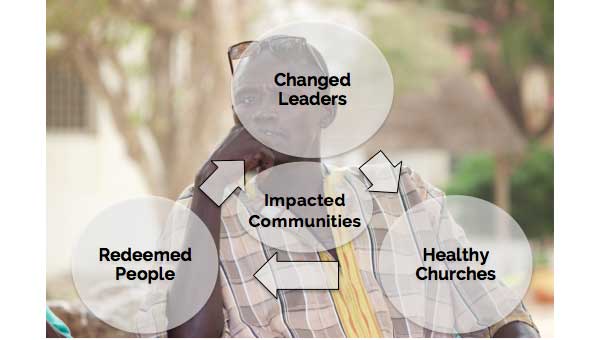Last week we started by asking, “What happens on the Wednesday after Giving Tuesday?” In the several weeks between now and the end of the year we are inviting you to “go beyond” and take part in what God is doing through Freedom to Lead International®. Empowered by the Spirit, Freedom to Lead is catalyzing a cycle: We cultivate Christ-centered leaders. These leaders foster healthier churches. These churches attract new people who often become redeemed people. These people impact their communities with the gospel and become a fresh coalition of potential Christ-centered leaders. In other words, the cycle begins with changed leaders, and the outcome is changed churches, people, and communities.
Read moreDuring the summer that I turned 37, my mentor asked me, “Have you decided what you want to be when you grow up? And how can I help you get there?” His tone was gentle. His words were warm. But his question was serious. It seems like the kind of question you ask a 5-year old. Or of someone who just finished high school. But at 37, much of my adult professional life has already been lived. I’ve grown in some areas, I’ve failed in others, but I’ve been doing it. Gone are the days of my idealistic youth. Idealism doesn’t leave a whole lot of margin for internal politics, unhealthy work cultures, and flawed systems. Nor does it account for the fact that we need to learn to master the “waiting game” as unfulfilled dreams to change the world rest.
Read moreThe real leaders in many organizations are not obvious by their positions. Often they are hidden, but identifying them for development and future leadership is critical to the organization’s success. Based on observation in diverse organizational sectors that span the globe, here are four indicators to spot leadership potential. Identifying people for leadership roles who possess these latent abilities – even if they are still in raw form – is crucial since these characteristics are more difficult to cultivate within adults. Four indicators to spot leadership potential:
Read moreFleas can jump up to 200 times their size. Put them in a jar with a lid on it, and they are soon jumping only as high as they can without hitting the lid. One Sunday I was the guest speaker at a small church. I went to the pastor’s home for the noon meal after the service. As we sat at the table, I could tell that this lunch was different; the pastor’s wife had set out the special napkins and silverware. The three children were on their best behavior. The older son caught my attention. He was a tall, lanky kid with cerebral palsy. After getting acquainted, I said to him, “Alan, what subjects do you like in high school?” With a smile, he answered, “Algebra. I love Algebra.” I continued, “What do you want to do after you graduate from high school?” With some hesitation, he responded, “Someday I’d like to be a math teacher.” I said, “So where do you want to go to college?” His father jumped in, “Alan’s handicapped; he’s not going to college.” The light in Alan’s face drained away. Influential people often put a lid on those they lead.
Read moreDavid Burnham, renowned behavior science researcher and partner of the Burnham Rosen Group, states that the charismatic, visionary leader is being superceded by the leader who: (1) brings a focus on creating accountability within others, (2) cedes decision making to others, (3) encourages experimentation and flexibility, and (4) concentrates on building a shared sense of purpose and shared values. The formula for leadership success today is taking its script from the ancient past. The 21st century is finally catching up to Jesus’ paradigm for leading.
Read moreThe predominant image of leaders in Jesus’ time – not very different from our own time – was that they were egocentric, oppressive, and in charge. Perhaps this is why Jesus never used the word “leader” when referring to his disciples. It seems that the conventional leadership values in his time were not those Jesus wanted to transfer to the future leaders of the church.
Read more



